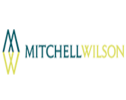Important Update: Budget Wrap 2013
The 2013 Federal Budget contained few surprises as many of the measures had already been announced, however most Australian households have been impacted in some way.
Baby bonus to be replaced with new Family Tax Benefit payment
Date of effect: 1 March 2014
The Baby Bonus, which currently pays $5,000 to eligible parents for each new born or newly adopted child, will be replaced from 1 March 2014.
Instead, families who are eligible for the Family Tax Benefit Part A (FTB(A)) will receive $2,000 following the birth of their first child, and $1,000 for each subsequent child. This benefit will be paid as part of their usual FTB(A) payment, instead of a cash bonus payment.
Changes to self-education expense deductions
Date of effect: 1 July 2014
From 1 July 2014, tax deductions for self-education expenses will be capped at $2,000 pa for individuals.
Net medical expenses tax offset to be phased out
Date of effect: 1 July 2013
The net medical expenses tax offset (NME tax offset) will be phased out with transitional arrangements applying to those who currently claim the offset.
Those taxpayers who claimed the NME tax offset in the 2012/13 income year will continue to be eligible for the offset in the 2013/14 income year if they have eligible out-of-pocket medical expenses above the relevant thresholds. Similarly, those who claim the NME tax offset in the 2013/14 income year will continue to be eligible for the offset in the 2014/15 income year.
The NME tax offset will continue to be available for taxpayers for out-of-pocket medical expenses relating to disability aids, attendant care or aged care expenses until 1 July 2019 when DisabilityCare Australia becomes fully operational and aged care reforms have been in place for several years.
Early HECS-HELP repayments removed
Date of effect: 1 July 2014
Up-front and voluntary early repayments under the HELP program will be removed in 2014. University and other eligible students will no longer receive a discount if they pay fees up-front or repay their HELP debt early.
Superannuation - Recent super reforms confirmed
Date of effect: various
The proposed reforms to Australia’s superannuation system that were announced on 5 April 2013 have been confirmed.
The key superannuation measures include:
Higher concessional contribution cap
The concessional contribution (CC) cap will increase to $35,000 pa from:
- 1 July 2013 for people 60 and over, and
- 1 July 2014 for people 50 and over
The cap will remain at $25,000 pa for all other ages.
The table below outlines the proposed caps that will be available over the coming years.
Age
2012/13
2013/14
2014/15
Under 50
$25,000
$25,000
$30,000
50 – 59
$25,000
$25,000
$35,000
60 and over
$25,000
$35,000
$35,000
Excess contributions tax reforms
Date of effect: 1 July 2013
Individuals will be allowed to withdraw any excess concessional contributions made from their super fund. In these instances, excess concessional contributions will be taxed at the individual's marginal tax rate, plus an amount for interest.
Reduced tax concessions for high-earners
Date of effect: 1 July 2012
In the 2012 Federal Budget, the Government announced that individuals with incomes above $300,000 pa will pay an additional 15% tax on their concessional super contributions. Draft legislation for this measure was recently released and was confirmed in the 2013 Budget.
Retirement incomes - Changes to tax on pension asset income
Date of effect: 1 July 2014
On 5 April 2013, the Government announced changes to the taxation of earnings in super pensions. These proposed changes have been confirmed and the following is due to apply from 1 July 2014:
All earnings on assets that support superannuation income streams will only be tax-free up to the first $100,000 per member, and earnings above $100,000 will be treated as income and taxed at 15%.
Personal tax changes - No changes to tax rates
The proposed changes to the marginal tax rates and income thresholds, which were due to take effect from 1 July 2015, will no longer be going ahead.
The table below summarises the thresholds and taxation rates that will continue to apply.
Current income thresholds
Marginal tax rates
$0 - $18,200
$18,201 - $37,000
$37,001 - $80,000
$80,001 - $180,000
$180,001 +
0%
19%
32.5%
37%
45%
Clean Energy Future: carbon price reduced and income tax cuts deferred
As part of the Clean Energy Future Package, the carbon price is projected to fall from $25.40 in 2014/15 to $12.10 in 2015/16. Accordingly, as previously announced, income tax cuts that had been already legislated (by way of increasing the tax-free threshold) and due to commence on 1 July 2015 will be deferred.
Social security changes - Income free area for allowance recipient
Date of effect: 20 March 2014
The income free area for certain allowance recipients will increase from $62 per fortnight to $100 per fortnight. This means, from 20 March 2014, an individual can earn up to $100 per fortnight before their maximum allowance is reduced.
This change will apply to:
- Newstart Allowance
- Sickness Allowance
- Parenting Payment (partnered)
- Widow Allowance
- Partner Allowance Payment
- Partner Allowance Pension
Family payments
There have been a number of changes to family payments. In some cases, this will mean fewer families will receive benefits and others will see their payments reduce as their income grows.
Some key changes include:
Changes to age eligibility from 1 January 2014: A family will only be eligible for FTB(A) until a child who is 16 years or older completes school.
Reduction in time to claim FTB and Child Care Assistance from 1 July 2012: When claiming FTB or Child Care Assistance, families will now only have 12 months from the end of the financial year to finalise their claim and determine if they’re eligible for an end of year supplement.
Housing help for Seniors
Date of effect: 1 July 2014
The Government will trial a program from 1 July 2014 to help older Australians move to more age-appropriate housing.
The program will apply an assets test exemption to Age Pension recipients who downsize their family home. To be eligible, the family home needs to have been owned for at least 25 years and at least 80% of the excess sale proceeds (up to $200,000) need to be deposited with an authorised institution.
The exemption also applies to people moving into a retirement village or granny flat, but not residential aged care.
Removing "dividend washing" opportunities
Date of effect: 1 July 2013
Measures will be introduced to ensure that sophisticated investors will not be able to engage in "dividend washing" allowing them to claim two sets of franking credits on effectively the same parcel of shares.
An investor selling shares ex-dividend and then immediately buying equivalent shares which carry a right to a dividend (cum-dividend) will only be entitled to claim one set of franking credits. To achieve this, changes are proposed to the required holding period of 45 days to gain access to franking credits attached to dividends paid on a share. Changes to the "last-in first-out" rules will also be considered.
The government will consult with business to ensure the best legislative response is implemented.
The measures will only apply to investors with franking credit tax offset entitlements of more than $5,000.
R&D Tax Incentive changes
Date of effect: 1 July 2013
How larger companies will be affected
Very large businesses with annual aggregate Australian turnover of $20 billion or more will not be eligible to receive the R&D Tax Incentive.
How smaller companies will be affected
Smaller companies are not impacted by these changes and can continue to receive a 45 per cent refundable tax offset. To improve cash flow and incentives to invest in R&D, from January 2014 eligible small to medium companies will also be able to access refunds on a quarterly instalment basis.



